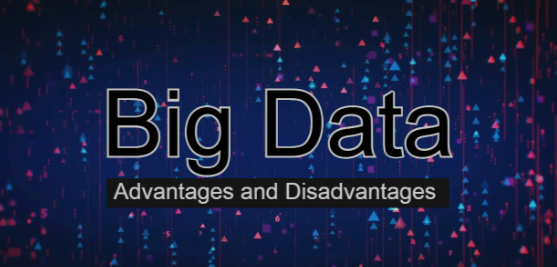
In our data-driven world, advantages and disadvantages of big data stands as a pivotal force shaping how businesses and organizations make critical decisions. It’s not just about the sheer volume of information anymore; it’s about the valuable insights buried within that can drive innovation and growth. Yet, with great power comes great responsibility. Big Data isn’t without its complexities and drawbacks. Let’s delve into the advantages and disadvantages that define this transformative technology landscape.
Advantages of Big Data
Improved Decision Making
Big Data isn’t just about the sheer volume of information; it’s about what you can do with it. Imagine having real-time insights into customer preferences or market trends. That’s the power of advantages and disadvantages of big data, it helps businesses make smarter decisions faster. Whether it’s adjusting marketing strategies on the fly or optimizing supply chain logistics, the ability to predict trends and react promptly gives companies a competitive edge.
Enhanced Customer Insights
Understanding your customers is key to success, and Big Data offers a goldmine of insights. By analyzing massive datasets, businesses can personalize customer experiences like never before. From recommending products based on past purchases to tailoring promotions to individual preferences, Big Data enables targeted marketing that resonates with customers. This deep understanding of your audience fosters loyalty and drives growth.
Disadvantages of Big Data
Data Privacy and Security Concerns
In the era of Big Data, privacy and security are hot-button issues. Collecting and storing vast amounts of personal information comes with great responsibility. Data breaches can happen, and when they do, they can have serious consequences for both businesses and individuals. Moreover, navigating the labyrinth of data protection laws and regulations adds another layer of complexity. Balancing the benefits of data-driven insights with the need to protect privacy is a constant challenge.
Cost and Complexity
Implementing a Big Data strategy isn’t cheap. It requires significant investments in technology infrastructure, specialized talent, and ongoing maintenance. The sheer complexity of managing enormous datasets from diverse sources adds to the financial burden. Small and medium-sized enterprises, in particular, may find the initial costs prohibitive. Moreover, the rapid pace of technological advancements means continuous upgrades and adaptations are necessary to stay competitive.
Case Studies
Big Data isn’t just theoretical; it’s making waves in real-world applications across various industries. Let’s explore a couple of compelling examples where organizations have leveraged Big Data to drive significant outcomes:
Netflix: Personalizing the Viewing Experience
Netflix is a prime example of how Big Data analytics can revolutionize entertainment. By analyzing viewers’ viewing habits, preferences, and even pause patterns, Netflix recommends personalized content to its users. This data-driven approach not only enhances user satisfaction but also optimizes content production and acquisition strategies. Netflix’s ability to predict viewer preferences has been a game-changer in the streaming industry.
Amazon: Optimizing Supply Chain Efficiency
Amazon uses Big Data to streamline its vast supply chain operations. By analyzing customer purchasing patterns and inventory data in real-time, Amazon can predict demand, manage inventory levels effectively, and reduce delivery times. This data-driven approach not only improves operational efficiency but also enhances customer satisfaction by ensuring products are available when needed.
Future Trends
Emerging Technologies in Big Data
The future of Big Data looks promising with advancements in technologies that promise to enhance data processing capabilities. Technologies like machine learning and artificial intelligence (AI) are expected to play pivotal roles in extracting meaningful insights from vast datasets. These technologies will not only automate data analysis but also improve accuracy and predictive capabilities, empowering businesses to make smarter decisions faster.
Impact on Business Strategies
Looking ahead, Big Data is set to transform how businesses operate and strategize. The ability to harness real-time data insights will drive innovation across industries, from healthcare and finance to retail and beyond. Businesses will increasingly rely on predictive analytics to anticipate market trends, optimize operations, and customize customer experiences. Moreover, the integration of Big Data with Internet of Things (IoT) devices will create new opportunities for data collection and analysis, further revolutionizing business processes.
Conclusion
So, what does all this mean for advantages and disadvantages of big data? It’s clear that while Big Data offers immense potential for businesses to innovate, optimize, and personalize, it also comes with significant challenges. From data privacy concerns to the complexities of implementation and maintenance costs, organizations must tread carefully. Big Data presents both opportunities and challenges, its transformative potential is undeniable. By navigating these complexities with foresight and innovation, businesses can unlock new levels of efficiency, innovation, and customer satisfaction in the digital age.
Read More :